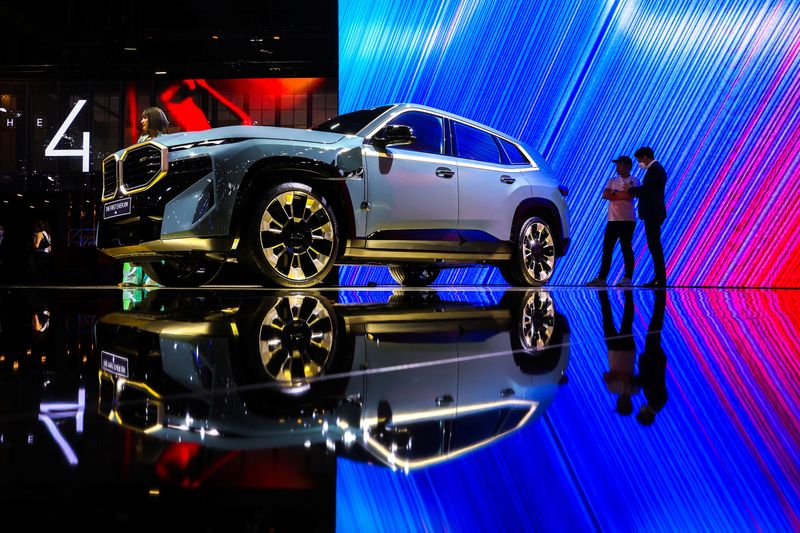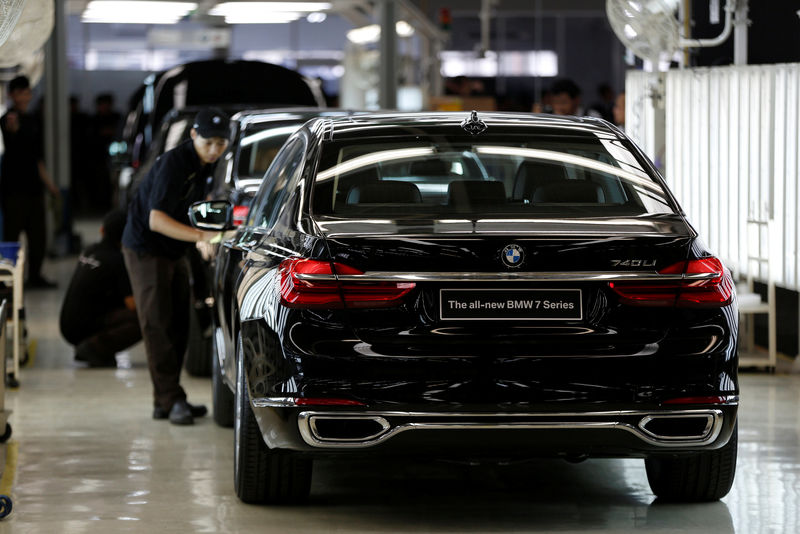By Andrei Sychev and Miranda Murray
BERLIN (Reuters) – Sluggish demand and fierce competition in China hurt third-quarter sales at BMW (ETR:) and Mercedes, the German luxury carmakers said on Thursday.
The German automotive sector faces multiple challenges, ranging from high production costs and managing the shift to electric vehicles to declining demand and increasing competition from China.
The problems have recently been illustrated by cost cuts at Europe’s largest carmaker, Volkswagen (ETR:), which is considering factory closures in Germany for the first time.
For the July-September quarter, BMW’s sales fell 13%, while Mercedes reported a 3% decline.
Demand in China, the world’s largest auto market, is suffering from a slowing economy, while foreign automakers face stiff competition from local manufacturers offering cheaper models, especially electric cars.
BMW’s sales in China fell by a third, while Mercedes’ sales fell by 13%.
Mercedes’ high-end segment was particularly affected by lower spending on consumer durables in China, which affected its range of luxury S-Classes, with prices starting from 451,800 yuan ($63,700) in the country.
BMW did not specify model performance in China, but said global sales of its Rolls-Royce (OTC:) limousines fell 16%, while the MINI brand fell 25%.
TRADE TENSIONS
Mercedes also noted a subdued global electric vehicle (BEV) market, with BEV sales down 31%. For BMW, BEV sales increased by 10% in the quarter.
The European Union recently imposed hefty tariffs on Chinese-made electric cars, claiming they benefit from unfair state subsidies. Beijing denies this and has threatened retaliation, while German carmakers, which make about a third of their profits in China, have expressed concern and called for more talks.
China is considering an increase in tariffs on imports of large motor vehicles, which would particularly affect German manufacturers. German exports of cars with 2.5-liter engines or larger to China amounted to $1.2 billion last year.
European consumers are reluctant to buy more expensive electric vehicles, partly due to patchy charging infrastructure.
Shares of BMW and Mercedes were flat after the sales data.
The companies cut their full-year forecasts in September due to a sluggish Chinese market, while BMW also cited problems with a braking system supplied by Continental.

So far this year, shares of BMW and Mercedes are down 23% and 9% respectively, while the pan-European auto index is down 13%.
($1 = 7.0770 renminbi)


